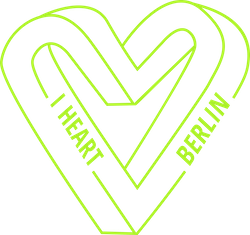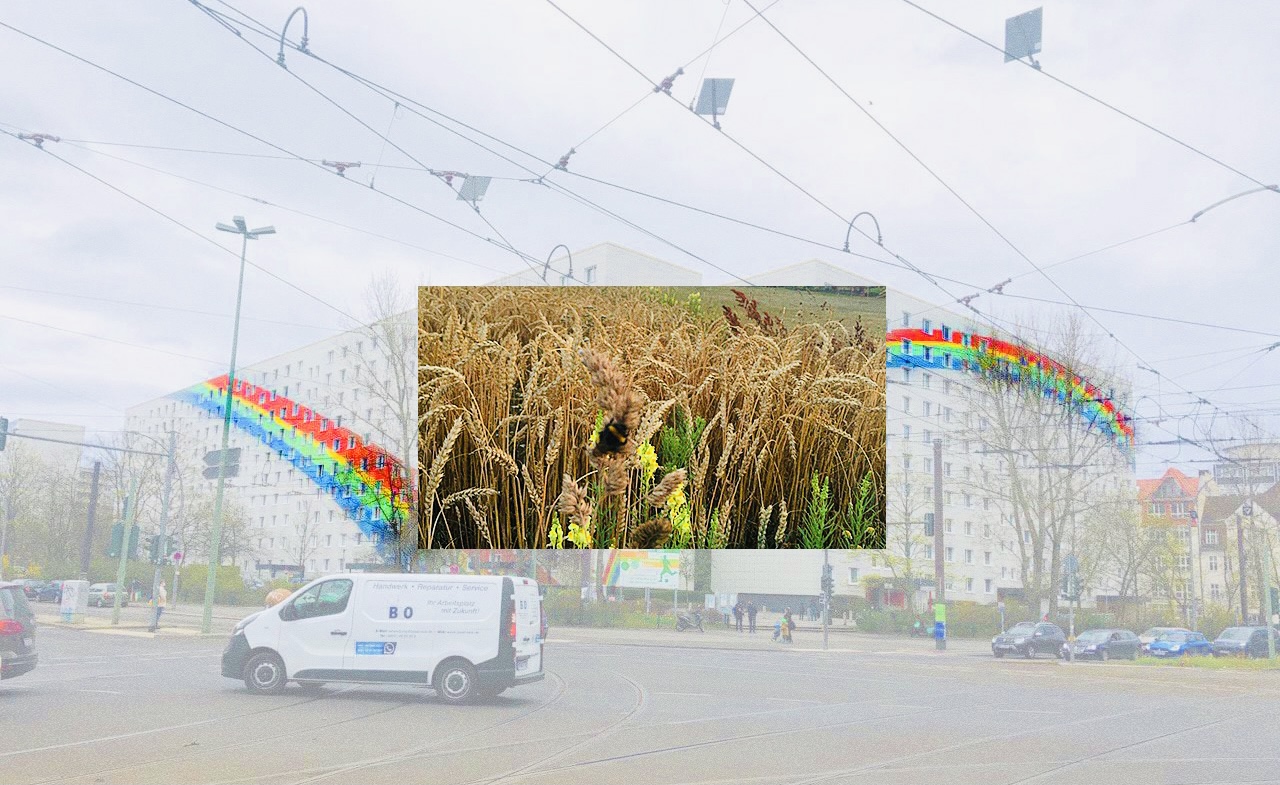On my first visit to Berlin, a man spat at my feet. His eyes were the eyes of a soldier at war. Precise, alert, and distrusting. And he had just spotted a body he considered the enemy. That body was queer, stout, and black. We were sitting across from each other on a train headed towards the direction of Alexanderplatz. A few moments before, I had just described Berlin to my mother as the embrace of a dearly loved one. Warm, soft, and safe. As I was peeling my phone from my ears, the spitter looked me in the face, coughed out the whiteish foam which he splashed across my feet. The act of spitting at my feet wasn’t a cleansing and or a fortification ritual done to welcome my feet to new and uncharted terrain. That was disgust, anger, and a kind of aggression that sent shivers down my spine. He was sending a clear message. One that was unmistakably meat to say; you are not welcome here. His message had three clear intentions; to warn me, put me in my place, and remind me I did not belong. He needed me to know that. It resonated. I didn’t even say a word. I took the message, got off the train one stop before my intended exit location. There, I waited for the next train in a stooping position. With a sigh and a paper napkin, I wiped my feet clean again.
As the owner of a body that many look at, as a subject to something, I wasn’t surprised. I knew to keep my guard up and to expect a protest. An intrusive curiosity, a domineering gaze, a sigh of disgust, improprieties, etc. It didn’t cross my mind that I was going to be adding racial assault to the list. He had drawn a line in the sand. A line to warn me immediately that I wasn’t home or safe. I understood his message. I also understood that to be able to give Berlin and myself another chance at a new beginning, I needed to look at the city with fresh eyes. I found out that like most cities in the global north, Berlin is stretched thin like a Giraffe’s neck. It is a place diverse only to the eyes of bodies in transit. It is a city that hides in the shadows of its many faces.
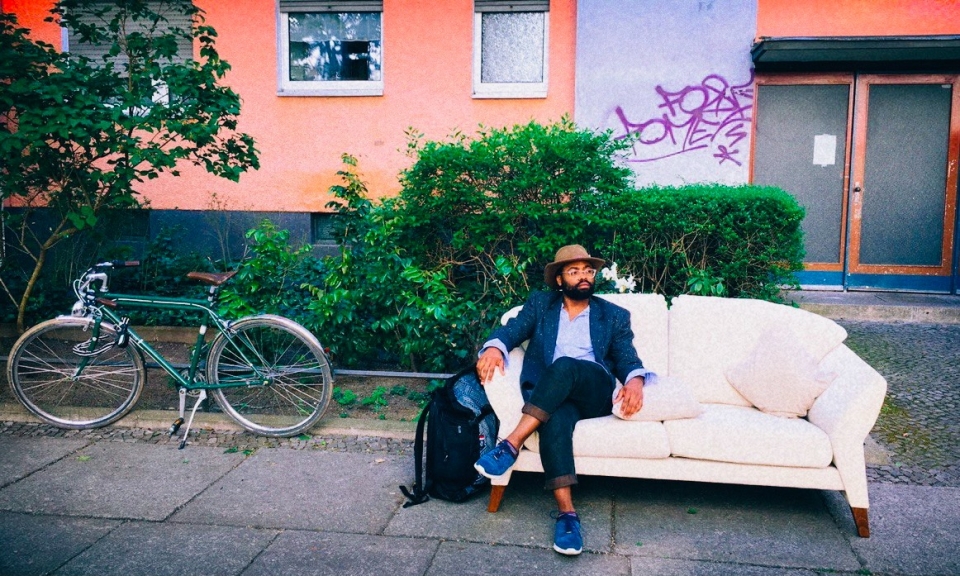
Berlin is a remote outlay of unfiltered desires unified by a single connected ground to which many declare allegiance – blindly. That loyalty begins with the phrase “Ich bin Berliner” – uttered almost immediately on arrival to the city. It is a pledge of allegiance. A claim uttered at the gates to whoever will listen, to secure entry, to captivate, to belong. It is as if its utterer’s desire to speak those three words into existence couldn’t come fast enough after years of dreaming and longing. Their love for the place starts off lingering like a new ensemble cast that eventually finds their footing, as their bodies begin to breathe new air on stage as they usurp the lives of the characters they have been hired to play.
Berlin reminds me of a farm. When I look at it, I see the city as a cornfield of bodies trafficking red, yellow, green, and ultraviolet lights, tight streets, long steel bridges, and sharp-edged buildings. And I am a single corn plant aching, hoping, and shivering. Lanky, green, and yellow, swaggering away with traveling winds, waiting to be plucked and harvested. In my mind, Berlin is a mosaic of hidden paths that bleed into each other, with busy streets that shadow-dance in vanity as they philander their way into visitors’ hearts. Here, desires have limbs, eyeballs, and mouths – they prowl, mingle and mate. Desire is also a boy who tried to throw his body off a ledge in broad daylight. He was 25. A student. And broke. We hugged, we cried, and then he vanished into the corner of a corridor down the hallway from my room in Wedding. Here, people arrive to disappear into thin air. In this field, people are like corn hair. Delicate, curious, and uniform in black-everything. They shoot up through brown earth, exposed to some of the same elements, like the many pressures to conform, high living costs, ever-fluctuating rent prices, scarcity of affordable living accommodations, continuous and undressed issues of racism and violence, etc.
Despite the city’s charms, it is a site where aspirations coincide with nightmarish realities and a history of violence and oppression, memorialized in statues, graveyards, monuments, etc. Those that aren’t, made overtly visible have been wiped clean from history books, psyches, memories as if they never transpired. Berlin’s role in the pillaging and raping of Africa is one of such histories the city wishes you knew nothing about. It is a place where freedom and diversity are buzzwords however, race discourse is the baby that gets thrown out with the bathwater.
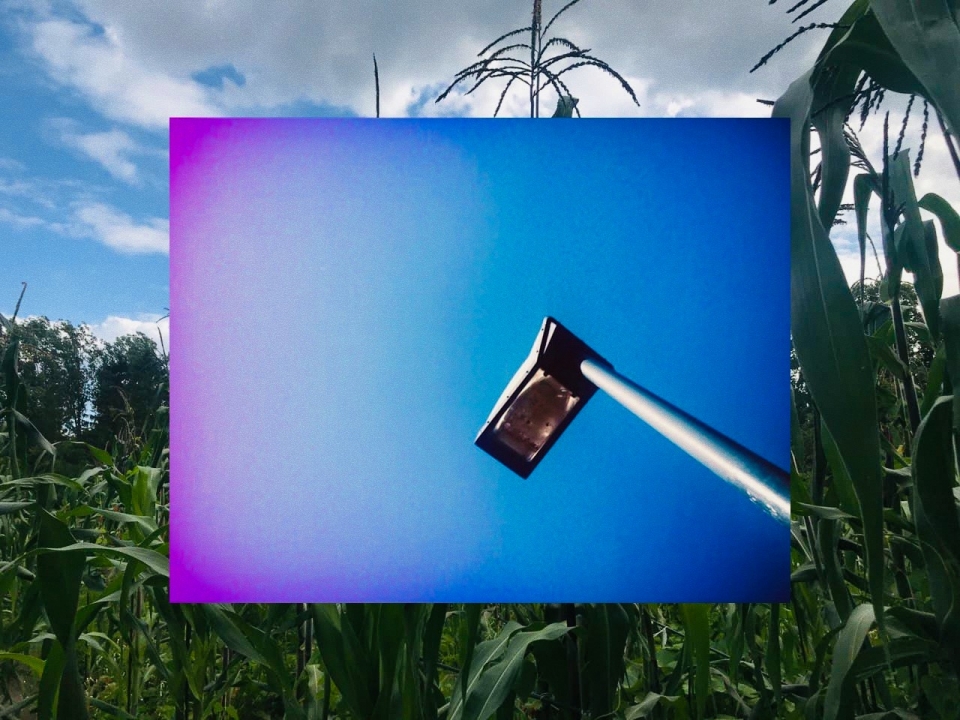
Here, plants start colonized and belonging to the whims of a hegemonic structure. Every plant that survives takes up a color and silhouette of its own. Golds, greens, browns, and yellows. Some appear half-grown, hanging on just barely, while others take on the shape of towering statues, of druids trapped in rustic temples, of concave rock turned inward as they race towards their peculiar zenith. Tall or small, they all stand in straight lines. In formation, swaying as if they are waiting to be given their marching orders. As if today was their last – so they want to make it count. They whisper. And sing and holler. Over time, they have developed a language of their own – a way of communing.
Afternoons in Berlin are like a quiet storm before the last rains of dwindling spring months – they are the green grass carpets that cover and prevent erosion. They are like the love of a parent in doubt. Ambivalent and gradual. They have mouths that muffle themselves in fear of what endless summer nights hold in their hearts. Some of the mufflings are a kind of preparation for the arrival of the night, however. It is resting after a long night of voicing. Of lips that travel in search of a resting place on the faces of friends, partners, and strangers. Their eyes are the distant places we get lost in. They swallow. They reel us back in. Again. And again. They are the disappearing cornfield in the wake of a locust attack. And when they bloom—they gold. They layer up. They crown themselves yellow and stardust at the top to indicate they are ripe and ready for harvest.
I am here fully – now. Without a doubt. Body, mind, and soul. I am not wondering about the city. Nor am I in lust or in search of what’s greener on the other side. The other side is here with me. The other side is, knowing who I am. It is, knowing what I came here to do. It is, knowing I have to work twice as hard for the things I want. It is knowing there is still so much work to be done to combat racism and police brutality in Berlin. I am at peace on most days – but there is always a looming danger in the air. So, I keep my body on alert.
Text: Hn. Lyonga
* * *
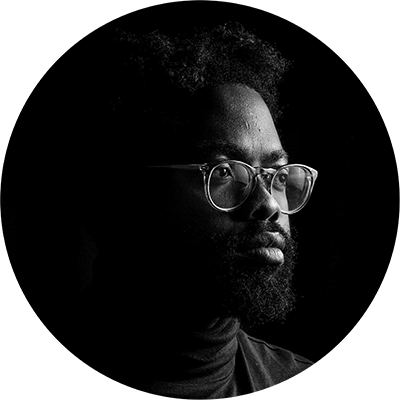 hn. lyonga is a Berlin-based Poet, Creative-writer and Activist. Currently, he is a Master’s student of American Studies at Humboldt-Universität Zu Berlin. He graduated with a Bachelor’s in American Culture and Sociology from the University of Kassel. He is a founding member of the Black Student Union at Humboldt and a member of the Kuratorium of BARAZANI.berlin – Forum Kolonialismus und Widerstand.
hn. lyonga is a Berlin-based Poet, Creative-writer and Activist. Currently, he is a Master’s student of American Studies at Humboldt-Universität Zu Berlin. He graduated with a Bachelor’s in American Culture and Sociology from the University of Kassel. He is a founding member of the Black Student Union at Humboldt and a member of the Kuratorium of BARAZANI.berlin – Forum Kolonialismus und Widerstand.
